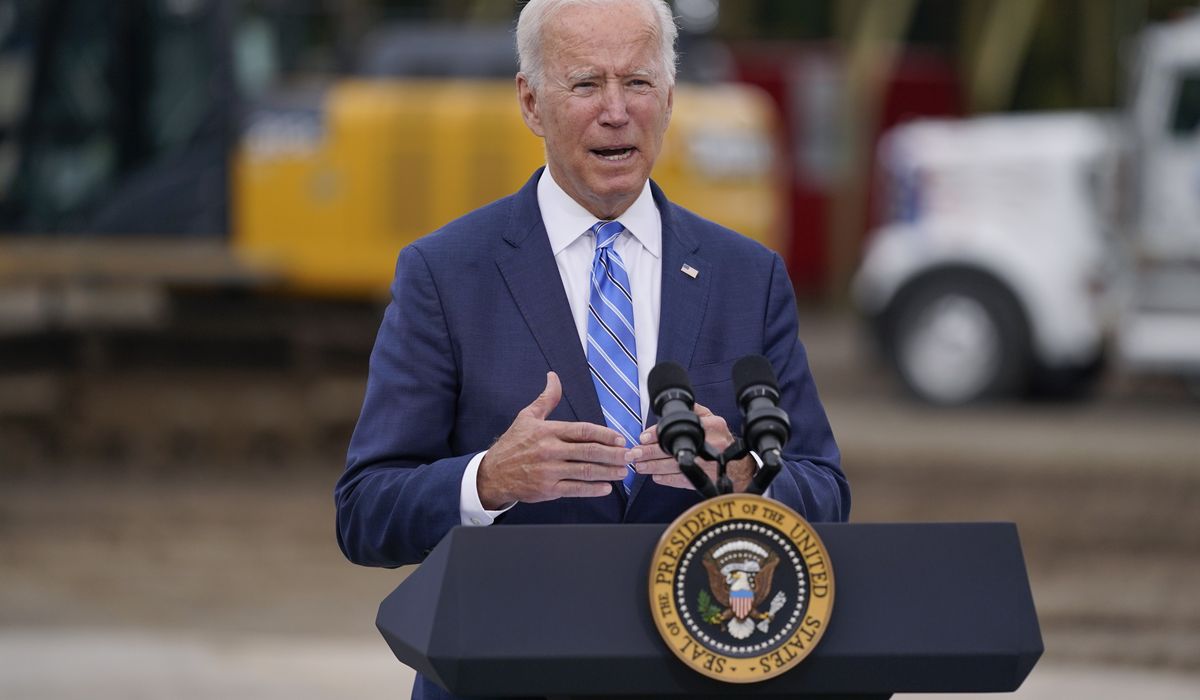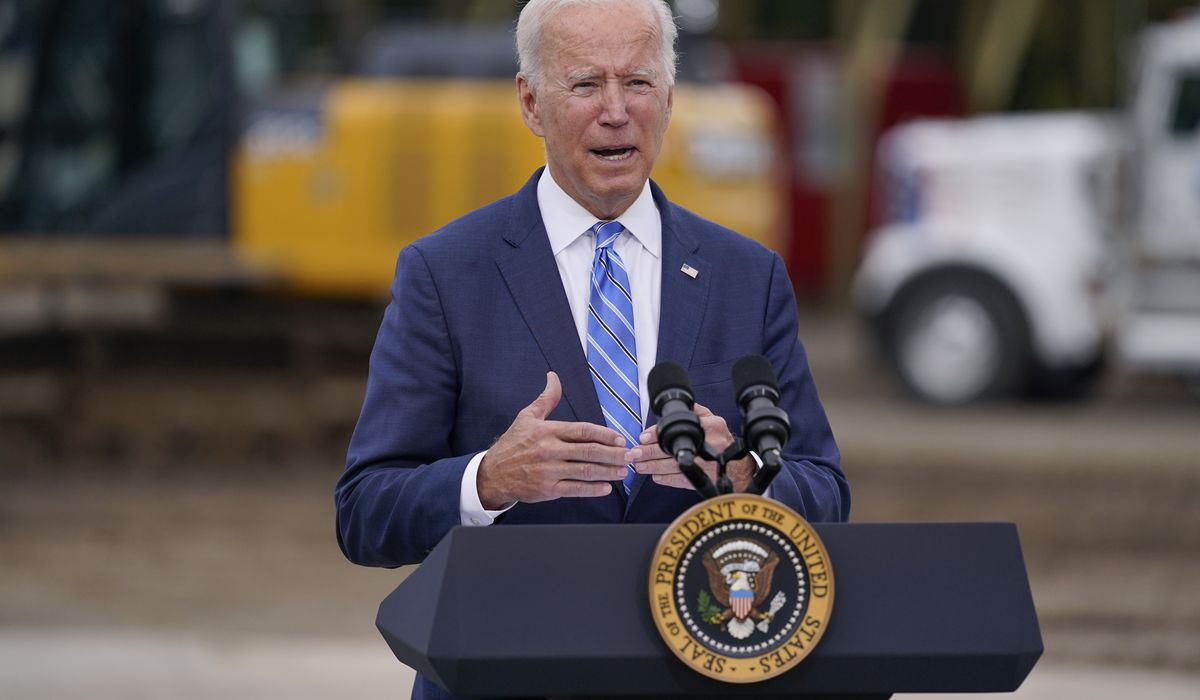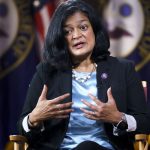
Scores of union workers from Hollywood to the Midwest, emboldened by President Biden‘s boast that he‘s the most pro-union president in decades, have gone on strike or threatened to walk off the job.
More than 100,000 are on the picket lines, and tens of thousands more could join them by the end of October, potentially touching off a strike wave not seen in the U.S. since the 1970s.
The unrest in industries including agriculture and film production threatens to further undermine an economy wracked by rising inflation.
It also sets up a political test for Mr. Biden, who doesn’t want to risk his support among labor leaders but needs to get soaring prices under control before next year’s midterm elections.
“These strikes are going to have an impact,” said Paul Clark, a professor of labor studies at Penn State University. “When employers raise wages, they raise prices to recapture what they are paying in higher labor costs, so we will see some of that.”
On Thursday, more than 10,000 workers at agricultural equipment manufacturer Deere & Co. went on strike. They joined 1,400 workers at the Kellogg Co., more than 2,000 nurses and other hospital workers in Buffalo, New York, 700 nurses in Massachusetts and nearly 160 caregivers in Connecticut on the picket lines.
Roughly 24,000 nurses and other health care workers at Kaiser Permanente this week authorized a strike, and 60,000 workers in the entertainment industry have threatened to walk off the job Monday if their union doesn’t reach a deal with television and film studios.
More than 12,000 Seattle-area carpenters went back to work this week after a three-week strike that halted construction in the Pacific Northwest.
The number of work stoppages has declined in recent years as union memberships dwindled. In 2020, only eight strikes involved more than 1,000 workers, the lowest number since 1947, according to the Bureau of Labor Statistics.
Since 2010, only 2019 has had more than 20 such strikes. From 1980 to 2000, only 1997 had fewer than 30 larger strikes, according to the bureau.
The unions primarily cite systemic issues as their reason for striking, including low pay, longer hours, poor working conditions and safety concerns.
But more recent events, including Mr. Biden‘s pro-union stance and the worker shortage caused by COVID-19 shutdowns, have given labor a shot in the arm.
“Right now, the stars are aligned in favor of unions,” Mr. Clark said. “They have both low unemployment, and you have a very friendly administration in Washington supportive of unions. Everything is in order for unions to take advantage of the situation right now.”
Mr. Biden has billed himself as an unabashed friend of labor.
On his first day in office, he signed an executive order making the creation of union jobs his administration’s top priority. In March, he made a video in support of Amazon workers’ right to unionize. He has touted his $4.7 trillion spending packages as ways to create high-paying union jobs.
“Clinton and Obama didn’t walk the walk,” Mr. Clark said. “Their rhetoric was pro-union, but their actions were not as supportive as labor expected. Now you have Biden, whose rhetoric is more pro-union than those presidents, and he‘s following through.”
When asked about the strike wave, White House press secretary Jen Psaki doubled down on the president’s support for labor.
“The president and vice president often say that this is the most pro-union administration in history, and they will continue to govern and lead with that in mind,” she said.
“They both feel [that] strongly supporting unions, the ability of workers to organize if they so choose, collective bargaining and the right to strike are fundamental rights,” she said.
“In healthy economies, employers must compete for workers, and we are seeing that,” Ms. Psaki said. “As unemployment drops, we are shifting to a market where workers have more bargaining power. Ultimately, that is a good thing.”
Dismissing notions that the strikes could derail the economy, she said she hasn’t heard that concern from the White House economic team.
Still, the strikes are affecting the economy.
Since Kellogg’s workers went on strike two weeks ago, the cereal maker’s stock has dipped by 6.5%. Deere & Co. stock tumbled by 7% Thursday after its workers hit the picket line.
Consumers will likely feel the pinch as companies increase the prices of cereal and other products to offset higher labor costs.
Rising prices have dogged Mr. Biden for most of his presidency. The Labor Department reported Wednesday that consumer costs of goods and services rose by 5.4% in September from a year earlier.
Inflation remains at its highest rate in over a decade, and pandemic-fueled labor and materials shortages rumble through the economy.
The Biden administration has argued that inflation is a transitory effect of the pandemic rebound, but the Labor Department’s report undercuts that claim.
Mark Mix, the president of the National Right to Work Legal Defense Foundation, a conservative anti-union advocacy group, said inflation is a factor in the labor unrest. He noted that workers want higher wages to offset increased costs.
“When a mom goes to the store and sees a box of cereal costs $5, she is going to demand more wages,” he said. “The price pull of inflation is something that is very much in play in the market.”
If the strikes result in higher prices of goods such as cereal and farm equipment, Mr. Biden will have a tougher economic environment to navigate. National polls and focus groups have found that many Americans are worried about inflation and rising costs.
“Those costs are going to hit the marketplace,” Mr. Mix said. “It creates a very difficult political position: Risk the wrath of union officials or risk the potential electorate as we move into a crucial midterm year.”
Biden administration officials also have downplayed the political impact of inflation.
Ms. Psaki said Wednesday that the inflation figures’ time frame doesn’t match real-world perceptions.
“We all understand the American people are not looking at cost-to-cost comparisons from this year to two years ago; they’re looking at cost-to-cost comparisons to their checkbooks from eight months ago or 12 months ago. And even though, factually, if you look back to two years ago, things may be comparative. That’s not how people look at things,” she said.
Also on Wednesday, White House Chief of Staff Ron Klain gave an approving retweet to a Harvard professor downplaying inflation as a “high class” issue.
“Most of the economic problems we’re facing (inflation, supply chains, etc.) are high class problems. We wouldn’t have had them if the unemployment rate was still 10 percent,” wrote Jason Furman, who served as chairman of the Council of Economic Advisers under President Obama.
Despite the impact on rising prices, analysts doubt Mr. Biden will get involved in labor disputes.
The president won’t want to risk spoiling his relationship with labor unions by doing anything other than being supportive of striking workers.
Jon Shelton, a labor historian at the University of Wisconsin, Green Bay, said Mr. Biden likely won’t encourage workers or criticize employers.
“I think there is a political risk in getting involved,” he said. “It’s not common for a president to get involved. I expect Mr. Biden will keep a hands-off approach while generally signifying that he supports the workers.”








